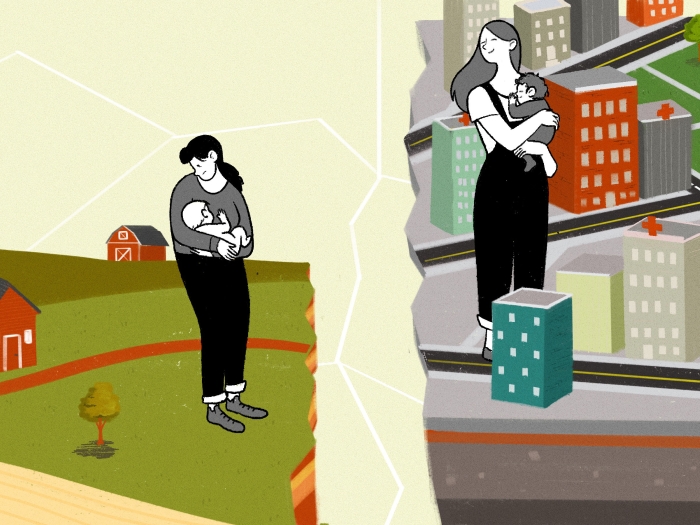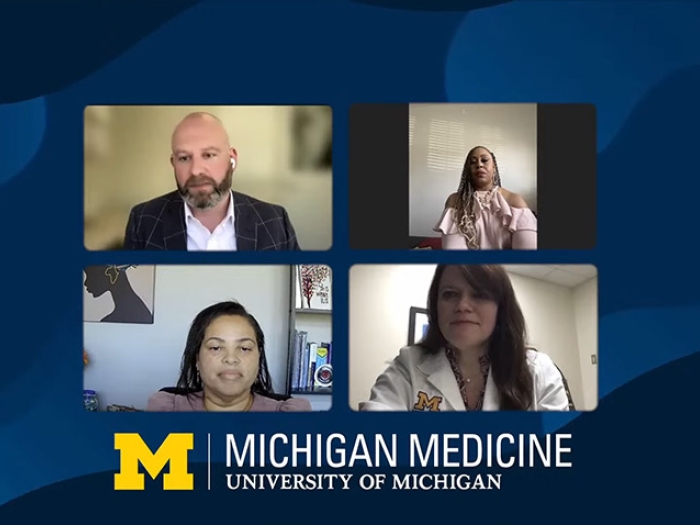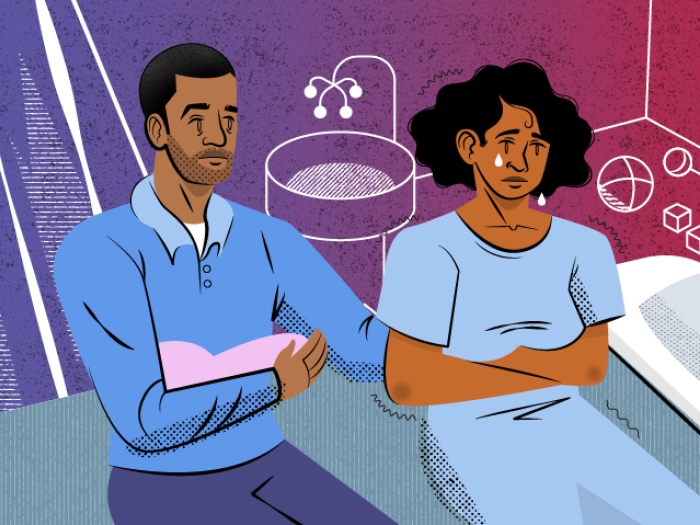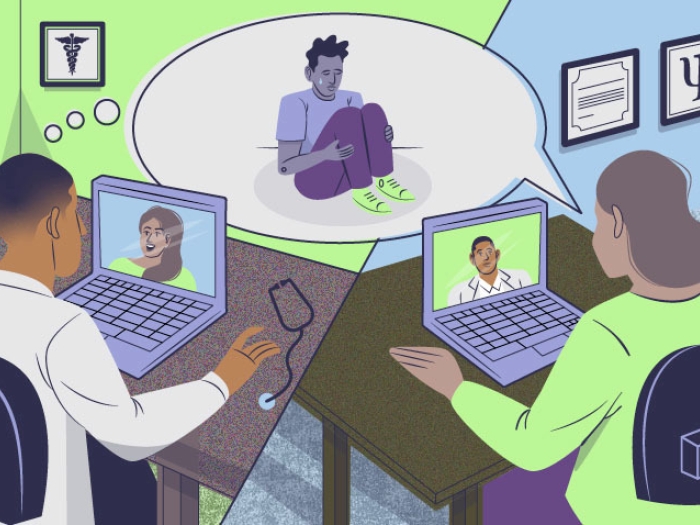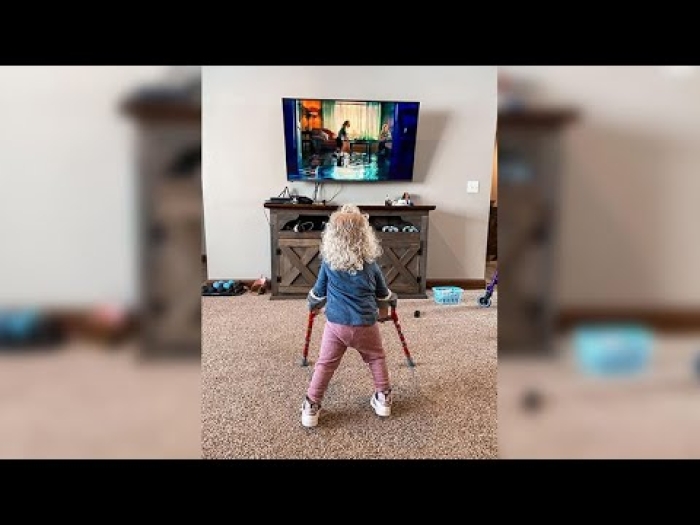A pediatric and adolescent gynecologist explains how to know when your daughter is ready for a visit, and how to prepare.
8:00 AM
Author |

For many parents of teen girls, the question of when teens need to start seeing a gynecologist sparks uncertainty.
The American Congress of Obstetrics and Gynecology and the North American Society for Pediatric and Adolescent Gynecology recommend annual Pap tests to screen for cervical cancer starting at age 21, regardless of sexual activity. But issues can come up long before then.
Because the average age for starting menstruation is 12 years and 9 months in the U.S., it's appropriate for girls to begin seeing a gynecologist as early as age 13, says Melina Dendrinos, M.D., a pediatric and adolescent gynecologist at Von Voigtlander Women's Hospital and the Brighton Center for Specialty Care.
Dendrinos explains more about when and why teen girls should visit a gynecologist — as well as what parents should know before they go.
The first visit
Although the vast majority of patients won't need to begin Pap screening for cervical cancer until age 21, Dendrinos recommends bringing your daughter to a gynecologist between the ages of 13 and 15, regardless of whether or not she's started menstruating or is sexually active.
Most often, a pelvic exam isn't needed at the first visit, and young girls should know that ahead of time to put their minds at ease.
"It's important for girls to know that they have a doctor who can help them with their reproductive health issues," Dendrinos says. "There may be primary care physicians who may also feel comfortable to provide this care, so you can always check there first if it feels more comfortable."
If you make an appointment with a gynecologist, the first visit will likely include a general physical exam, which includes height, weight and blood pressure measurements. The physician may also perform a brief external genital exam, but the visit will likely be conversational more than anything else.
"There are certain issues that may require some sort of a pelvic exam, although rarely an internal exam," Dendrinos says. "Let your daughter know she will probably talk to the doctor by herself for a part of the visit and this is a good time to discuss more private topics."
MORE FROM MICHIGAN: Sign up for our weekly newsletter
Important conversations
In most cases, your daughter's first appointment is an opportunity to talk about her development and establish a relationship with her gynecologist.
During visits, Dendrinos counsels patients about risky behavior such as smoking, drug and alcohol abuse, and unprotected sex. And, unless your daughter is doing something that could hurt them or someone else, it remains strictly confidential.
"We can discuss so many different topics, like puberty, hygiene, STIs, contraception, exercise, mental health … the list goes on," Dendrinos says. "The conversation will be tailored to the patient's needs or concerns."
Another major topic during many initial patient visits is the vaccine against human papillomavirus, or HPV. This sexually transmitted infection is associated with most cervical cancers. Doctors advise that one of the most effective tools for prevention is the HPV vaccine, a series of two or three injections ideally given at age 11 or 12.
The vaccine serves as protection before your daughter may want to be sexually active. The vaccine will still work after sexual activity but it's less effective, according to Dendrinos. If a parent is nervous about the vaccine, the Centers for Disease Control and Prevention website tracks its efficacy and safety.
Knowing what's 'normal'
How often should you see a gynecologist? Well, it depends.
"After an exam, another visit may not be needed for years. But the gynecologist will be able to guide you on that timing," Dendrinos says. "If specific issues come up, like irregular periods or a yeast infection, for example, an appointment should be made."
Every child is different, but in general if girls don't show secondary sexual characteristics such as breasts and pubic hair by age 13, they may need an evaluation. If there is breast and pubic hair development but no menstruation by age 15, then seeing a gynecologist is a must.
It doesn't necessarily mean something is wrong if a girl's period isn't regular at first. In the first two years of menstruation, it's common for periods to deviate from the strict cycle of every four weeks or even to skip a month.
But pay attention to menstrual pain if it's excessive. Some pain with periods is normal, but girls should be able to manage routine cramps with over-the-counter pain medicines, according to Dendrinos.
"If a period is so heavy you're changing tampons or pads every hour, or the pain is interfering with daily activities, an appointment should be made," Dendrinos says. "Girls should also be evaluated if menses are consistently more frequent than every three weeks or less frequent than every six weeks."
Just as you would seek out a cardiologist for a heart condition, it's recommended that parents seek out a pediatric and adolescent gynecologist if their daughter has recurring issues or if they have concerns about her development.
LISTEN UP: Add the Michigan Medicine News Break to your Alexa-enabled device, or subscribe to our daily updates on iTunes, Google Play and Stitcher.

Explore a variety of health care news & stories by visiting the Health Lab home page for more articles.

Department of Communication at Michigan Medicine
Want top health & research news weekly? Sign up for Health Lab’s newsletters today!
